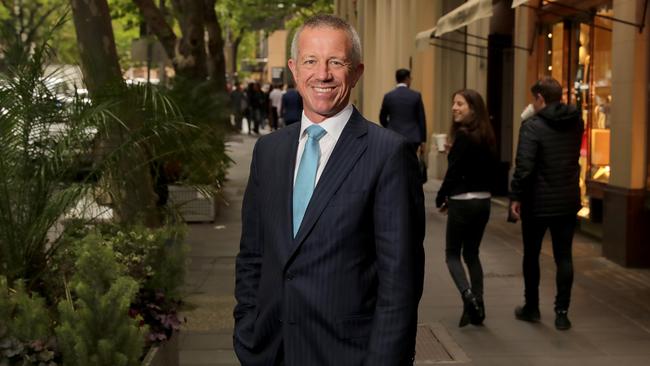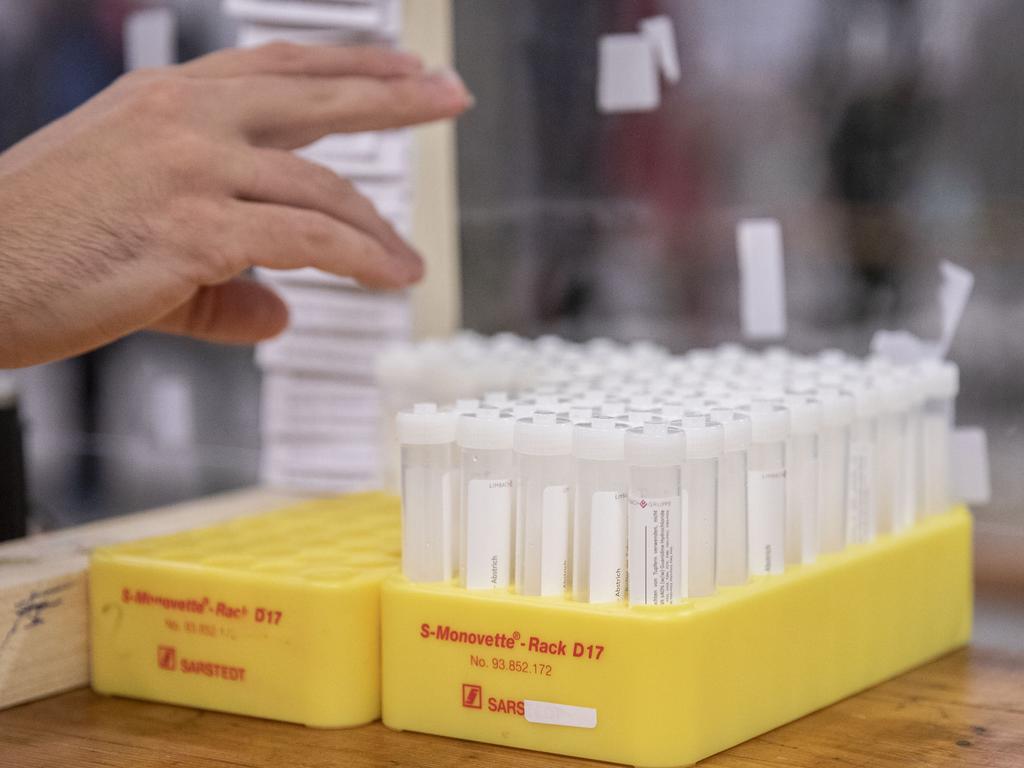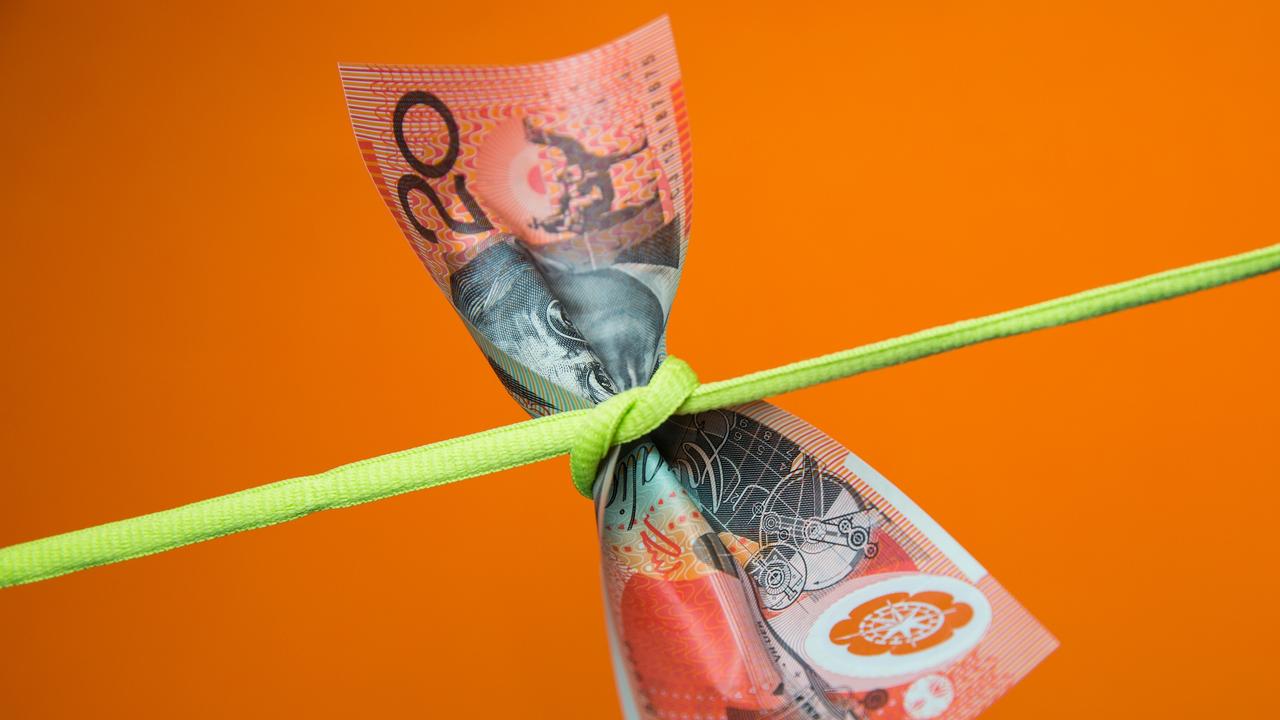Banks and commonwealth create half a billion ‘future fund for small businesses’
The Morrison government turned down a chance to rescue Virgin, but becoming a shareholder in small and medium sized businesses is a different story.

Australia’s big four banks and the Morrison government will become shareholders in a raft of small and medium-sized businesses after tipping in $100m each to create a half a billion dollar “future fund” for the sector.
The Australian Business Growth Fund — which also includes $20m contributions from Macquarie Bank and HSBC, bringing the total to $540m — is aimed at providing fresh capital injections into SMEs to help catapult the country out of its coronavirus-fuelled recession.
The fund will target investment yields of up to 20 per cent, with former NAB executive Anthony Healy as its chief executive and former Tasmanian premier Will Hodgman as chair. The fund will be available to SMEs generating annual revenue of $2m to $100m and a track record of three consecutive years of revenue growth and profitability.
Mr Healy said the Business Growth Fund (BGF) was similar to other funds overseas and would involve taking minority stakes of 10-40 per cent in businesses to help deliver growth and more jobs as the country recovered from the COVID-19 pandemic.
“We are looking to back the owner and management team of the business, and secondly it’s long-term — most private equity funds are in and out in three, four or five years. We have a time horizon of up to 10 years,” Mr Healy said.
“We will also be building a talent network, which will be able to bring expertise and advice and capability to support small and medium-sized business owners.”
Mr Healy said the fund aimed to fill a gap in the market for “patient, long-term growth capital for SMEs”.
“If you’re a start-up or you have got really innovative technology at the VC (venture capital) or Angel investment end there is lots of capital available and the big PE (private equity) funds are focused on the larger end of the segment,” Mr Healy said.
“But for your typical SME that turns over $2m to $100m, it’s always been a challenge, what I call accessing patient growth capital. This is very much designed to meet the needs of businesses who genuinely need equity growth capital.”
Like any shareholder, if a business that the GBF has invested in is sold, the capital provided will be returned to the fund. Mr Healy said the fund’s stake could also be bought out by another business or paid out by the SME but he acknowledged it wasn’t without risk.
“There are a whole range of ways that our capital will be paid back.
“Like any investor you take risk when you invest. We want to back the right businesses, with good growth prospects and quality management teams, but obviously there are risks inherent in any of these.
“As an equity investor, we obviously rank behind the banks. We are a shareholder in the business.”
The creation of the fund comes after the Morrison government refused to support Virgin via an equity arrangement at the onset of the pandemic, leading to airline falling into administration, being taken over by US private equity firm Bain Capital and its chief executive Paul Scurrah resigning this week to make way for Bain adviser and former boss of budget airline Jetstar, Jayne Hrdlicka — angering unions.
Treasurer Josh Frydenberg said the BGF was part of the government’s “ongoing commitment” to support SMEs as they “seek to innovate, expand and create new jobs on the other side of the coronavirus crisis”, and aimed to double in size to $1bn as it matured.
“Established Australian businesses will be eligible to apply for long-term equity capital investments between $5 and $15m,” Mr Frydenberg said.
“The BGF will operate commercially and make investment decisions independently of government.”
CBA chief executive Matt Comyn said SMEs were “the backbone of our economy”, employing more Australians than any other sector and the fund was aimed at helping them fulfil their potential.
“As Australia’s biggest bank, we are very aware of the challenges many small businesses face when trying to grow, particularly during these challenging economic times.
“We’re also very aware of the role we can play in helping address these challenges, which is why we expressed our interest in the government’s plans from the outset and are pleased to have been involved in helping the fund reach this milestone.”
NAB group executive for business and private banking, Andrew Irvine — who recently left Bank of Montreal in Canada — said NAB “were strong supporters of the platform as a new way for Australian businesses to access long-term equity capital”.
“Access to capital is critical to help businesses reach the next level of growth … initiatives like this are a powerful way to support entrepreneurs,” Mr Irvine said.






